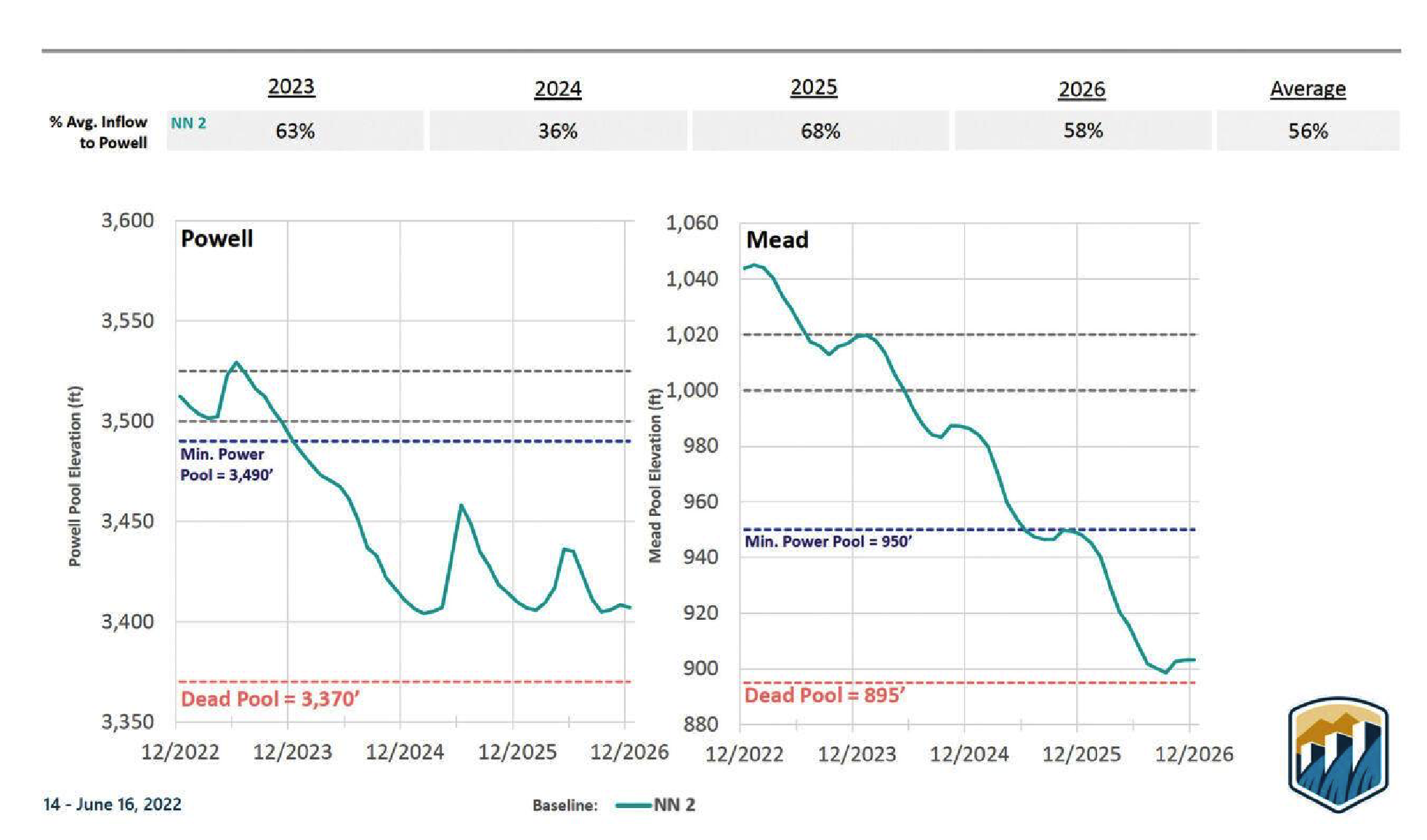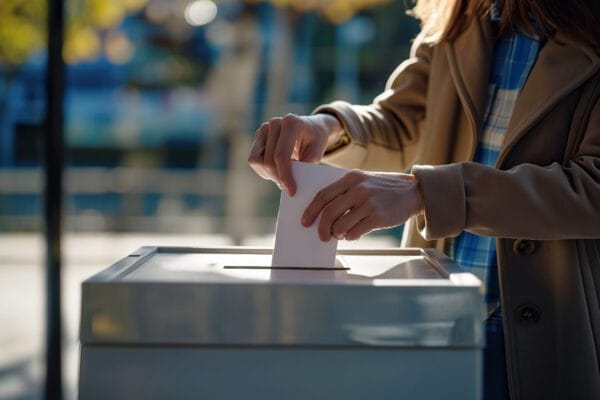The latest U.S. Bureau of Reclamation report paints a grim forecast for water levels in the two lakes that serve Arizona and six other states. || Bureau of Reclamation
By Mark Moran and Scott Shumaker || East ValleyTribune
In the West, whiskey is for drinking; water is for fighting.
Arizona residents felt the reality of that maxim on Aug. 15 as several Western states announced that two months of closed-door negotiations to cut an emergency 12% to 25% from next year’s Colorado River withdrawals had yielded bupkus.
The Bureau of Reclamation in June demanded the deep cuts to bolster the amount of water in Lakes Powell and Mead, which have been dropping faster than predicted in recent years amid long-term drought and warming climate.
About a third of Arizona’s annual water supplies come from those reservoirs.
There was hope that the states, faced with the increasingly realistic threat of dead pool conditions on the Colorado and loss of hydropower production, would come together and deliver a deal.
But those hopes were dashed two weeks ago as states started to point fingers when the deadline passed.
Arizona’s delegation of negotiators said in a statement that “Arizona and Nevada put forward an aggressive proposal that would achieve 2 (million acre-feet) of reductions among the Lower Basin and Mexico in 2023 and beyond. That proposal was rejected.”
“There is still time,” Deputy Interior Secretary Tommy Beaudreau told reporters earlier this month. He did not set a new deadline, but he and other federal officials warn Arizona’s water situation is severe.
The Bureau of Reclamation has told the states to reduce their usage by 2 to 4 million acre-feet in 2023. That amounts to Arizona’s entire annual consumption. Maybe more.
“You can’t possibly overestimate how hard this is,” Felicia Marcus, a fellow at Stanford University’s Water in the West program and former chair of the California State Water Resources Control Board told Politico magazine in July. “Each state has their own peculiar set of politics.”
Here in Arizona, the Municipalities Water Users Association says that despite the states’ failure to reach a mid-August agreement, people won’t see any difference at their taps – at least right away. Its website notes that “unpredictability” can always change immediate access to water.








